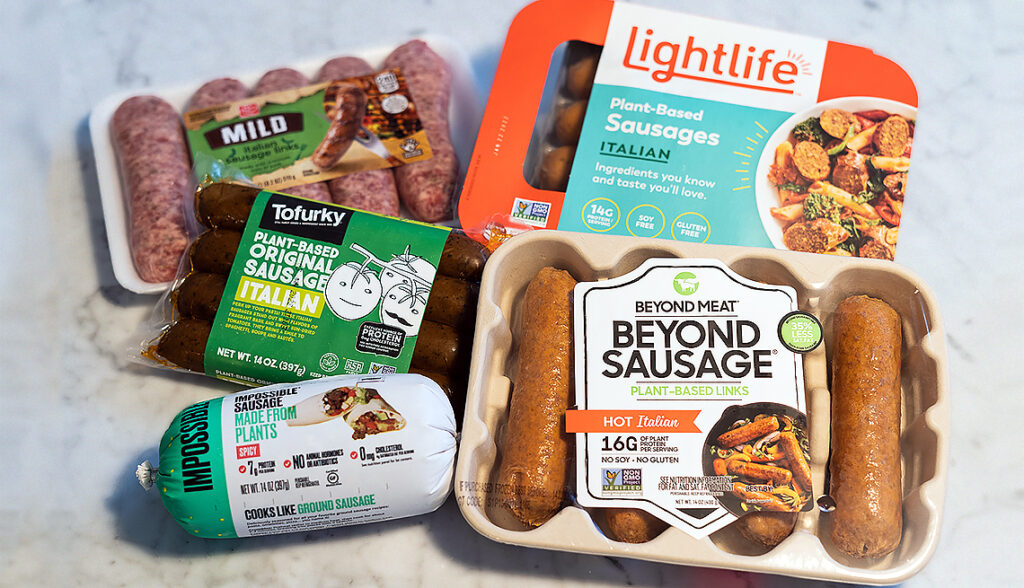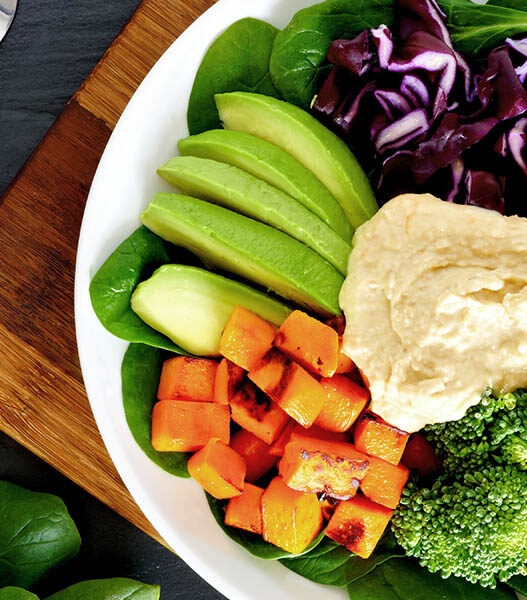You’ve undoubtedly noticed the growing availability of plant-based meat substitutes. With all these growing popularity, you might have a question, “is plant-based meat good for you?”
It is vegan or vegetarian because they are manufactured with plant ingredients that can be utilized in recipes that typically call for meat.
Many of them are so tasty and adaptable that they are also enjoyed by others who are not strictly plant-based. But even with their widespread use, you might be unsure about the plant-based diet meat substitutes. So, let’s learn about “is plant-based meat good for you”.
Plant-based meats
Animals such as pigs (pork), cows (beef), and chickens are the source of meat products like beef, bacon, and sausage. In contrast, plant-based meat may resemble your favorite meats in appearance and flavor, but it is manufactured from a number of meatless ingredients, such as soy, peas, wheat gluten, pulses, or even jackfruit.
According to a 2021 article in Nutrients, plant-based meat can also contain artificial coloring, flavoring, salt, and processing aids to provide a “meat-like” sensory appeal.
Because they don’t contain any animal products, plant-based meats like bacon, meatballs, and other meat substitutes will have a flavor, texture, and look that is comparable to that of regular meat.

Plant-based meats – Healthy or not
According to recent studies, plant-based meat substitutes are generally healthier than their animal counterparts, although they can also contain more sugar and frequently lack essential nutrients.
According to lead author Maria Shahid, there isn’t much proof of the true health effects of plant-based meat alternatives, despite their increasing popularity, which is frequently motivated by health concerns.
She said:
“Both plant-based and processed meats mostly fall into the ultra-processed category, so this raises concerns about their role in a healthy diet. While we found plant-based meat products were generally healthier than their processed meat equivalents, healthier alternatives would still be lean unprocessed meats and legumes, beans and falafel.”
Meat analogues, often known as plant-based meats, are made to resemble meat products and serve as a protein alternative. They are often manufactured from fermentation-based fungal protein (mycoprotein) or plant-based vegetable protein (soy, wheat, pea, and rice, or a mixture).
Popularity of Plant-based meats
Sales in Australia alone are predicted to reach about A$3 billion by 2030 as a result of customer demand propelling the development of new products that mimic the structure, texture, flavor, and look of traditional meat products.
The nutrient content and nutritional quality of plant-based meat substitutes and their corresponding meat items found in Australian supermarkets were evaluated and compared by George Institute researchers using the Institute’s FoodSwitch database.
Burgers, meatballs, mince, sausages, bacon, coated poultry, plain poultry, and meat with pastry were among the meat product kinds and plant-based meat analog equivalents that were examined.
Using the Australian Government’s Health Star Rating system, they discovered that plant-based meat substitutes had a slightly lower energy content and a generally healthier nutritional profile when compared to identical animal products.
Although the protein level was comparable in both groups, plant-based meat substitutes typically had more fiber and substantially less salt and saturated fat than meat products.
However, just 12% of the 132 plant-based meat substitutes that were examined were enhanced with iron, zinc, and vitamin B12, three vital micronutrients that are present in meat and are necessary for good health.
Dr. Daisy Coyle – Nutritionist at the George Institute
According to Dr. Daisy Coyle, a nutritionist at the George Institute, processed meats are categorized as discretionary foods in Australia’s national dietary guidelines and have been connected to a number of cancers. As such, consumers are encouraged to limit their intake of these meats as part of a healthy diet.
“But it isn’t as simple as a straight swap – solely relying on meat alternatives as a direct replacement for meat could lead to iron, zinc and B12 deficiencies over time if you are not boosting your intake of these essential nutrients from other sources or taking supplements,” she said.
“To guard against this, make sure you are consuming other animal proteins such as eggs, cheese, milk, yoghurt and/or rich plant-based sources of iron including dark leafy vegetables such as spinach and broccoli, as well as tofu, nuts and seeds, and beans and legumes.”

“Until we know more about the health impacts of plant-based meat analogues and have recommendations on how to include them as part of a healthy balanced diet, its best to eat them in moderation along with other plant-based proteins such as bean patties, falafel and tofu, or if you are not vegetarian or vegan, unprocessed lean meats and seafood,” Daisy added.
Conclusion
Is plant-based meat good for you or not? For ethical, environmental, or health reasons, more and more Americans are choosing to eat plant-based meats. But not all plant-based meat substitutes are good for you.
Many people think that increasing their intake of plant-based foods will help the environment and their own health.

















